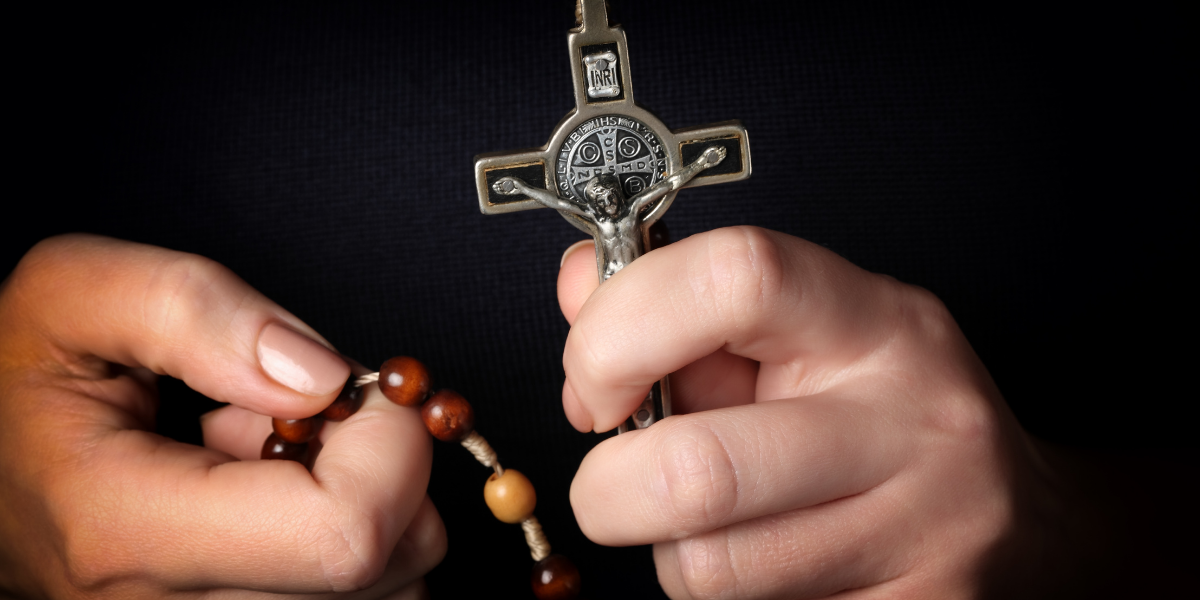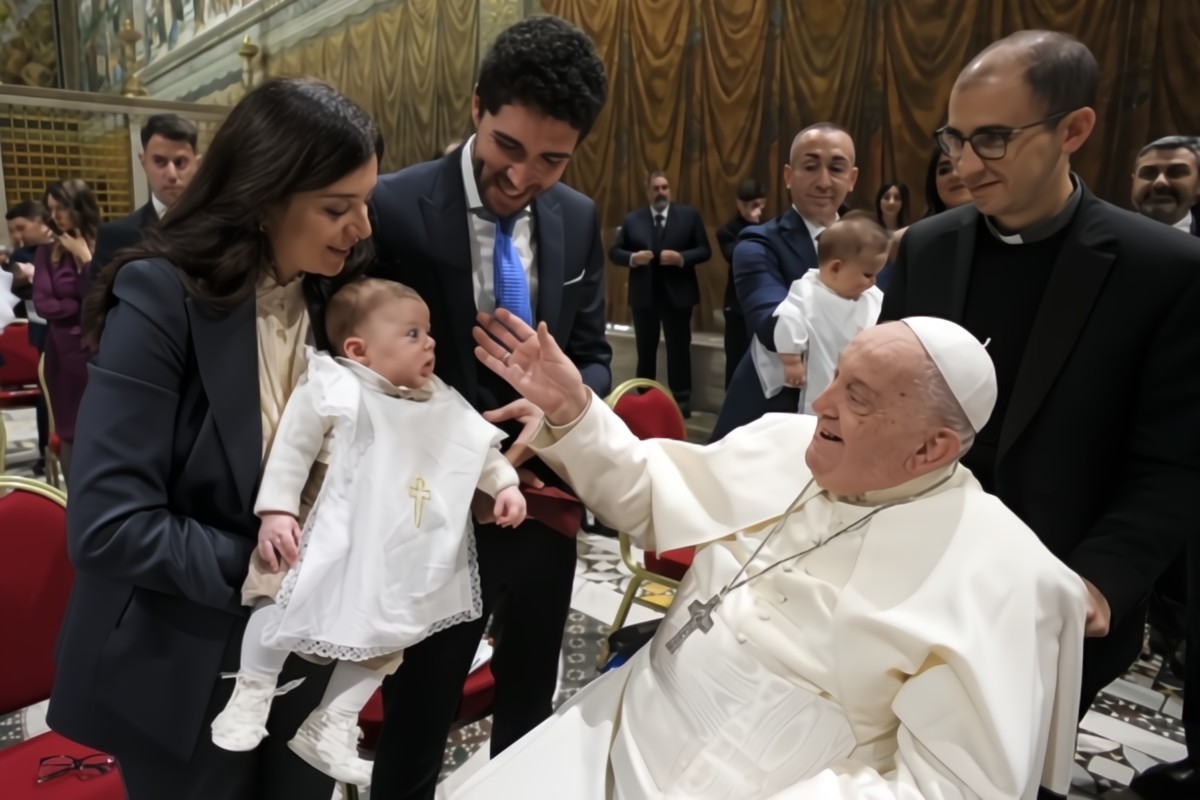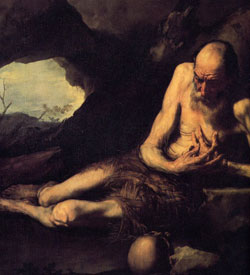We ask you, urgently: don’t scroll past this
Dear readers, Catholic Online was de-platformed by Shopify for our pro-life beliefs. They shut down our Catholic Online, Catholic Online School, Prayer Candles, and Catholic Online Learning Resources—essential faith tools serving over 1.4 million students and millions of families worldwide. Our founders, now in their 70's, just gave their entire life savings to protect this mission. But fewer than 2% of readers donate. If everyone gave just $5, the cost of a coffee, we could rebuild stronger and keep Catholic education free for all. Stand with us in faith. Thank you.Help Now >
Apostolic Constitution for Anglicans and the Coming Full Communion of the Church
FREE Catholic Classes
'Every division among the baptized in Jesus Christ wounds that which the Church is and that for which the Church exists'. (Pope Benedict XVI)
Highlights
Catholic Online (https://www.catholic.org)
11/10/2009 (1 decade ago)
Published in Europe
ROME (Catholic Online) - "Given in Rome, at St. Peter's, on November 4, 2009, the Memorial of St. Charles Borromeo." These words appear just before the signature of Pope Benedict XVI on the historic Apostolic Constitution entitled Anglicanorum Coetibus. The name of the Apostolic Constitution, as with many magisterial documents, is taken from the first words of the Latin text. It means "Groups of Anglicans".
The dates when magisterial documents of this kind of significance are dated - and then released - are significant. Nothing of this magnitude is ever done haphazardly by the Holy See. The dates of promulgation and release underscore the significance of the document. I believe that is particularly the case with this extraordinary Apostolic Constitution setting forth the framework for Anglican Christians to come into the full communion of the Church in "Personal Ordinariates" and retain elements of their Anglican ethos and identity.
St. Charles Borromeo is associated with a period of great Catholic reform following the divisions in the Church collectively referred to as the Protestant Reformation. He was a significant influence during the Council of Trent and became a champion of a major reform within the Catholic Church. He was the proponent of a deliberate resurgence of the catechetical instruction of the faithful which included the promulgation of a Catechism. He was the champion of the seminary system for the instruction of priests.
Joseph Cardinal Ratzinger, prior to assuming the Chair of Peter, gave an interview to European Journalist Vittorio Messori which was released as The Ratzinger Report. In it he said this about of 16th century St. Charles Borromeo: "For me, Charles Borromeo is the classic expression of a real reform, that is to say, of a renewal that leads forward precisely because it teaches how to live the permanent values in a new way, bearing in mind the totality of the Christian faith and the totality of man . . . he was totally centered on Christ". So too is Joseph Ratzinger, now Pope Benedict XVI, totally centered on Jesus Christ. He is also leading a "real reform" and genuine renewal in the Church in this Third Christian Millennium.
Anglicanorum Coetibus, was released on Monday, Nov. 9, 2009, the Feast of the Dedication of the Lateran Basilica. This Feast honors the unifying role of the Chair of Peter as a gift for the whole Church. The Lateran Basilica was built by the Emperor Constantine on the Lateran Hill in Rome around 324 AD. It has since become the symbol of the Office of the Papacy as a gift and guarantor of unity for the whole Church. The Basilica is referred to as the "the mother and head of all the churches of the City and the World." This Petrine Feast was extended to the entire Latin Church as a sign of unity with - and love for - the See of Peter. St. Ignatius of Antioch was one of the strongest voices acknowledging what was already very clear in the second century that it is the occupant of Peters' Chair who "presides over the whole assembly of charity."
The two dates send a clear message; this historic document is situated within a major period of Reform for the whole Catholic Church at the beginning of the Third Christian Millennium. Pope Benedict XVI, the "Pope of Christian Unity", understands the vital role of the Office he occupies and is working toward the coming full communion of the Church. On April 20, 2005, after he had concelebrated Mass with the members of the College of Cardinals in the Sistine Chapel, he signaled this mission of unity with these words:
"Nourished and sustained by the Eucharist, Catholics cannot but feel encouraged to strive for the full unity for which Christ expressed so ardent a hope in the Upper Room. The Successor of Peter knows that he must make himself especially responsible for his Divine Master's supreme aspiration. Indeed, he is entrusted with the task of strengthening his brethren (cf. Luke 22: 32). With full awareness, therefore, at the beginning of his ministry in the Church of Rome which Peter bathed in his blood, Peter's current Successor takes on as his primary task the duty to work tirelessly to rebuild the full and visible unity of all Christ's followers. This is his ambition, his impelling duty."
Anglicanorum Coetibus continues his unfolding mission of Unity and is historic in its its' implications for the future. Pope Benedict XVI, an extraordinary theologian writes in this Apostolic Constitution:
"In recent times the Holy Spirit has moved groups of Anglicans to petition repeatedly and insistently to be received into full Catholic communion individually as well as corporately. The Apostolic See has responded favorably to such petitions. Indeed, the successor of Peter, mandated by the Lord Jesus to guarantee the unity of the episcopate and to preside over and safeguard the universal communion of all the Churches, could not fail to make available the means necessary to bring this holy desire to realization.
"The Church, a people gathered into the unity of the Father, the Son and the Holy Spirit, was instituted by our Lord Jesus Christ, as "a sacrament - a sign and instrument, that is, of communion with God and of unity among all people." Every division among the baptized in Jesus Christ wounds that which the Church is and that for which the Church exists; in fact, "such division openly contradicts the will of Christ, scandalizes the world, and damages that most holy cause, the preaching the Gospel to every creature." Precisely for this reason, before shedding his blood for the salvation of the world, the Lord Jesus prayed to the Father for the unity of his disciples.
"It is the Holy Spirit, the principle of unity, which establishes the Church as a communion. He is the principle of the unity of the faithful in the teaching of the Apostles, in the breaking of the bread and in prayer. The Church, however, analogous to the mystery of the Incarnate Word, is not only an invisible spiritual communion, but is also visible; in fact, "the society structured with hierarchical organs and the Mystical Body of Christ, the visible society and the spiritual community, the earthly Church and the Church endowed with heavenly riches, are not to be thought of as two realities. On the contrary, they form one complex reality formed from a two-fold element, human and divine." The communion of the baptized in the teaching of the Apostles and in the breaking of the eucharistic bread is visibly manifested in the bonds of the profession of the faith in its entirety, of the celebration of all of the sacraments instituted by Christ, and of the governance of the College of Bishops united with its head, the Roman Pontiff.
"This single Church of Christ, which we profess in the Creed as one, holy, catholic and apostolic "subsists in the Catholic Church, which is governed by the successor of Peter and by the Bishops in communion with him. Nevertheless, many elements of sanctification and of truth are found outside her visible confines. Since these are gifts properly belonging to the Church of Christ, they are forces impelling towards Catholic unity."
We offer our readers the full text of the Apostolic Constitution in related stories below. We also offer the accompanying "Complementary Norms issued by the Apostolic See" and the official Vatican Press Release. I am convinced that the implications of this Apostolic Constitution extend beyond the Anglicans who will choose to embrace its invitation. Those who do will find the grace found in full communion for themselves and enrich the whole Church by their presence, their worship and their witness of one more vital expression of Catholic life. However, this is a prophetic moment, the beginning of the Millennium which will usher in the full Communion of the Catholic Church and a new missionary age.
As a Deacon of the Catholic Church, I was ordained for the Roman Rite. However, I have a longstanding, deep love for the Eastern Christian Church and, with study and approval, was authorized to serve in the Melkite Greek "Byzantine" Catholic Church as well. Over the years I have discovered how few Catholics in the Latin Church even know there are "Eastern Catholics" in our Catholic Church. They do not know of the beauty of the Divine Liturgy and would be surprised by some unique distinctives in both their theological and liturgical expression.
There is room for legitimate diversity within the orthodoxy and orthopraxy of the One, Holy, Catholic and Apostolic Church. Unity does not mean uniformity. In his extraordinary Encyclical Letter of 1995 entitled Ut Unum Sint"/"May They be One" the late Servant of God John Paul II laid out a challenge for the whole Church to take up. That Encyclical called the whole Catholic Church to recover it's unity and a proper expression of its legitimate diversity. The reception of our Anglican brethren who follow the path laid out in this new Apostolic Constitution will enrich the whole Church. However, I believe it also stands as a prophetic sign of things to come. Pope Benedict XVI is the "Pope of Christian Unity" and he has only begun his important work in response to the call of the Holy Spirit in this important hour.
---
'Help Give every Student and Teacher FREE resources for a world-class Moral Catholic Education'
Copyright 2021 - Distributed by Catholic Online
Join the Movement
When you sign up below, you don't just join an email list - you're joining an entire movement for Free world class Catholic education.

-

-
Mysteries of the Rosary
-
St. Faustina Kowalska
-
Litany of the Blessed Virgin Mary
-
Saint of the Day for Wednesday, Oct 4th, 2023
-
Popular Saints
-
St. Francis of Assisi
-
Bible
-
Female / Women Saints
-
7 Morning Prayers you need to get your day started with God
-
Litany of the Blessed Virgin Mary
Introducing 'Journey with the Messiah' - A Revolutionary Way to Experience the Bible
-

9 Harmful Practices to Avoid When Confronting the Devil
-

Pope Francis Celebrates the Feast of the Baptism of the Lord with Special Emphasis on the Gift of Faith
-
New Respiratory Virus Spreads Across China: Is it a Threat to the Global Community?
-
Resurgent Nuclear Threats and the Call for Peace
Daily Catholic
 Daily Readings for Wednesday, January 15, 2025
Daily Readings for Wednesday, January 15, 2025 St. Paul the Hermit: Saint of the Day for Wednesday, January 15, 2025
St. Paul the Hermit: Saint of the Day for Wednesday, January 15, 2025 Prayer for a Blessing on the New Year: Prayer of the Day for Tuesday, December 31, 2024
Prayer for a Blessing on the New Year: Prayer of the Day for Tuesday, December 31, 2024- Daily Readings for Tuesday, January 14, 2025
- St. Felix of Nola: Saint of the Day for Tuesday, January 14, 2025
- St. Theresa of the Child Jesus: Prayer of the Day for Monday, December 30, 2024
![]()
Copyright 2024 Catholic Online. All materials contained on this site, whether written, audible or visual are the exclusive property of Catholic Online and are protected under U.S. and International copyright laws, © Copyright 2024 Catholic Online. Any unauthorized use, without prior written consent of Catholic Online is strictly forbidden and prohibited.
Catholic Online is a Project of Your Catholic Voice Foundation, a Not-for-Profit Corporation. Your Catholic Voice Foundation has been granted a recognition of tax exemption under Section 501(c)(3) of the Internal Revenue Code. Federal Tax Identification Number: 81-0596847. Your gift is tax-deductible as allowed by law.








 Daily Readings for Wednesday, January 15, 2025
Daily Readings for Wednesday, January 15, 2025 St. Paul the Hermit: Saint of the Day for Wednesday, January 15, 2025
St. Paul the Hermit: Saint of the Day for Wednesday, January 15, 2025 Prayer for a Blessing on the New Year: Prayer of the Day for Tuesday, December 31, 2024
Prayer for a Blessing on the New Year: Prayer of the Day for Tuesday, December 31, 2024


